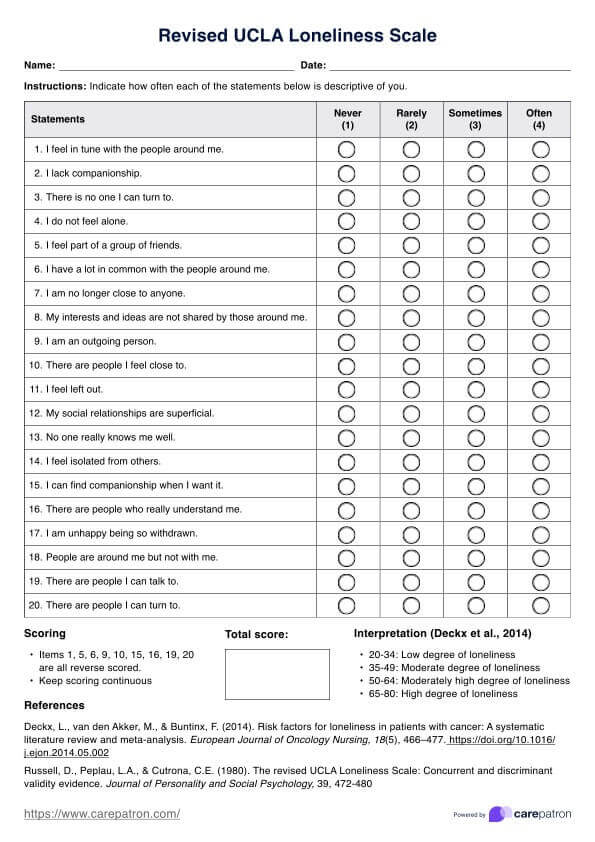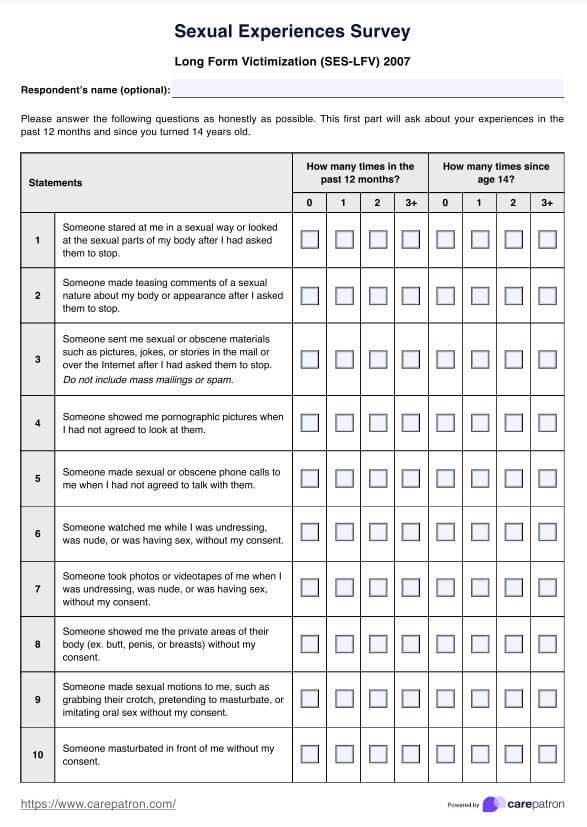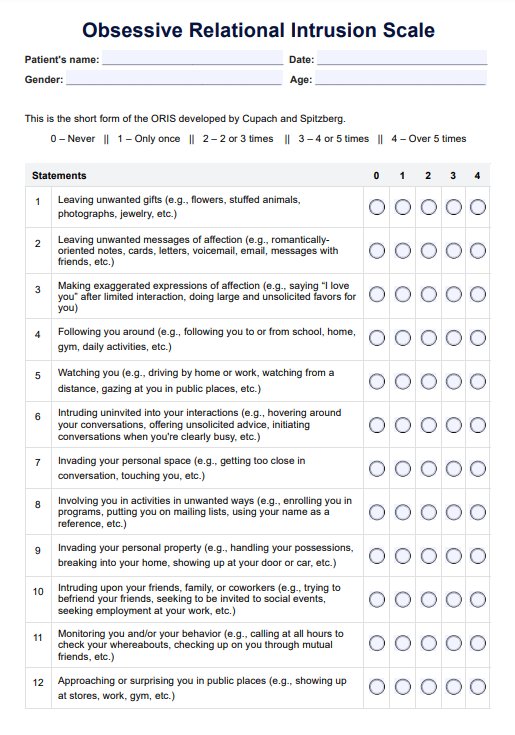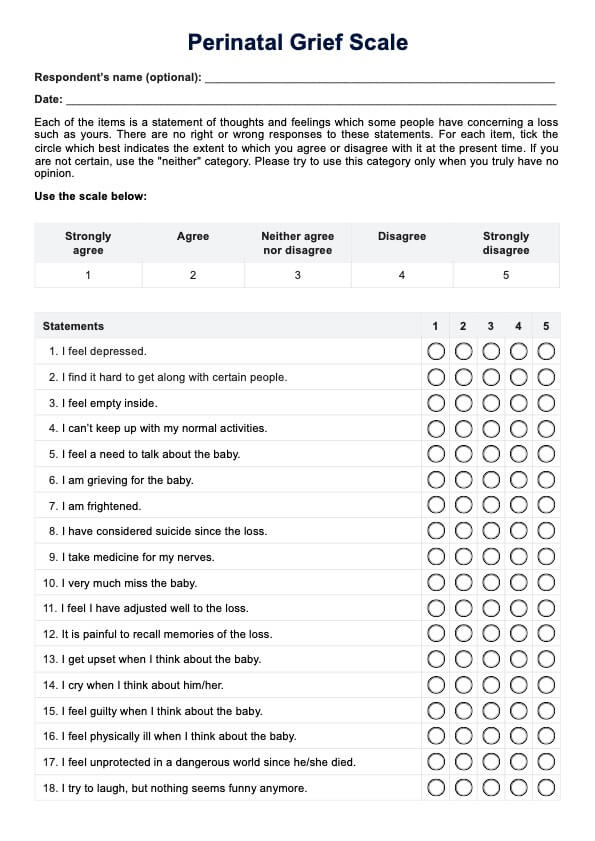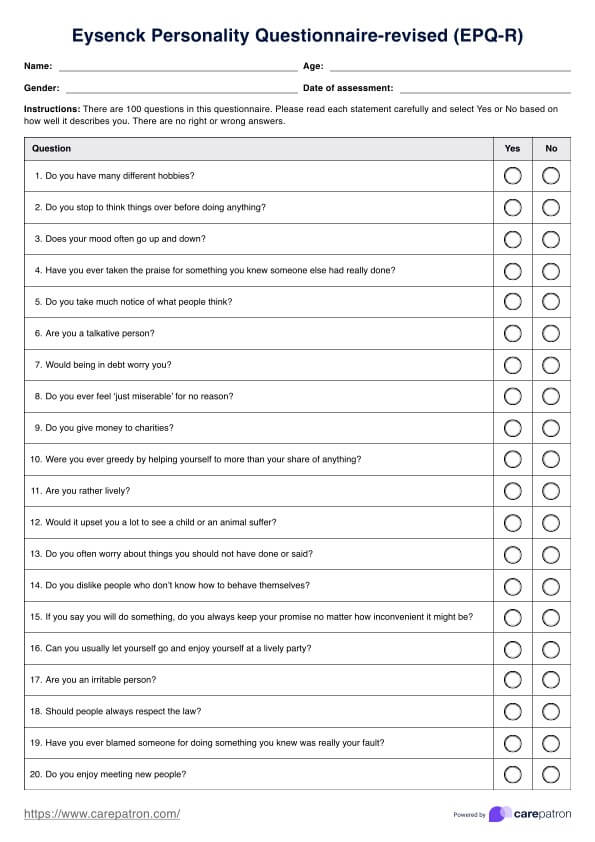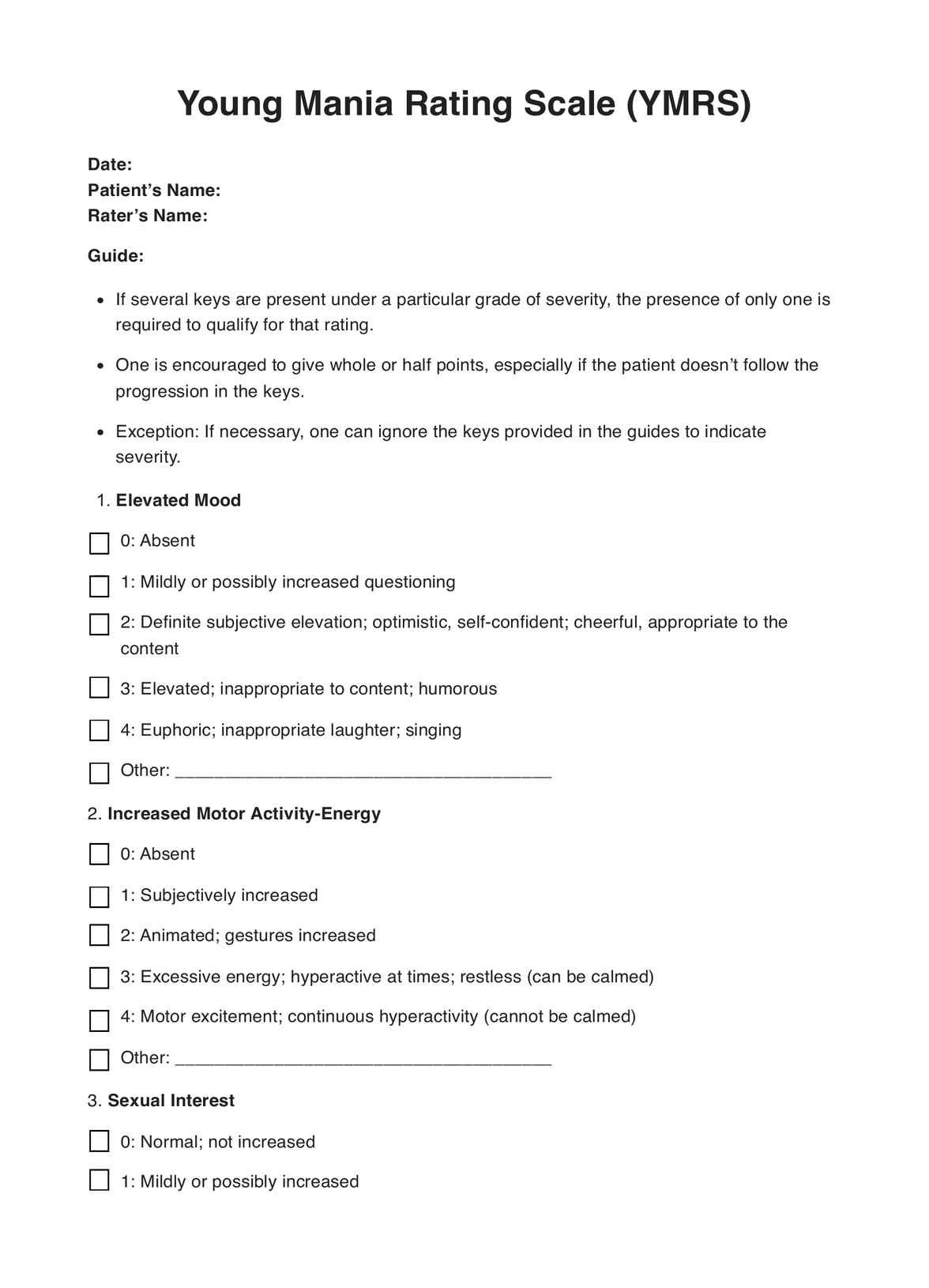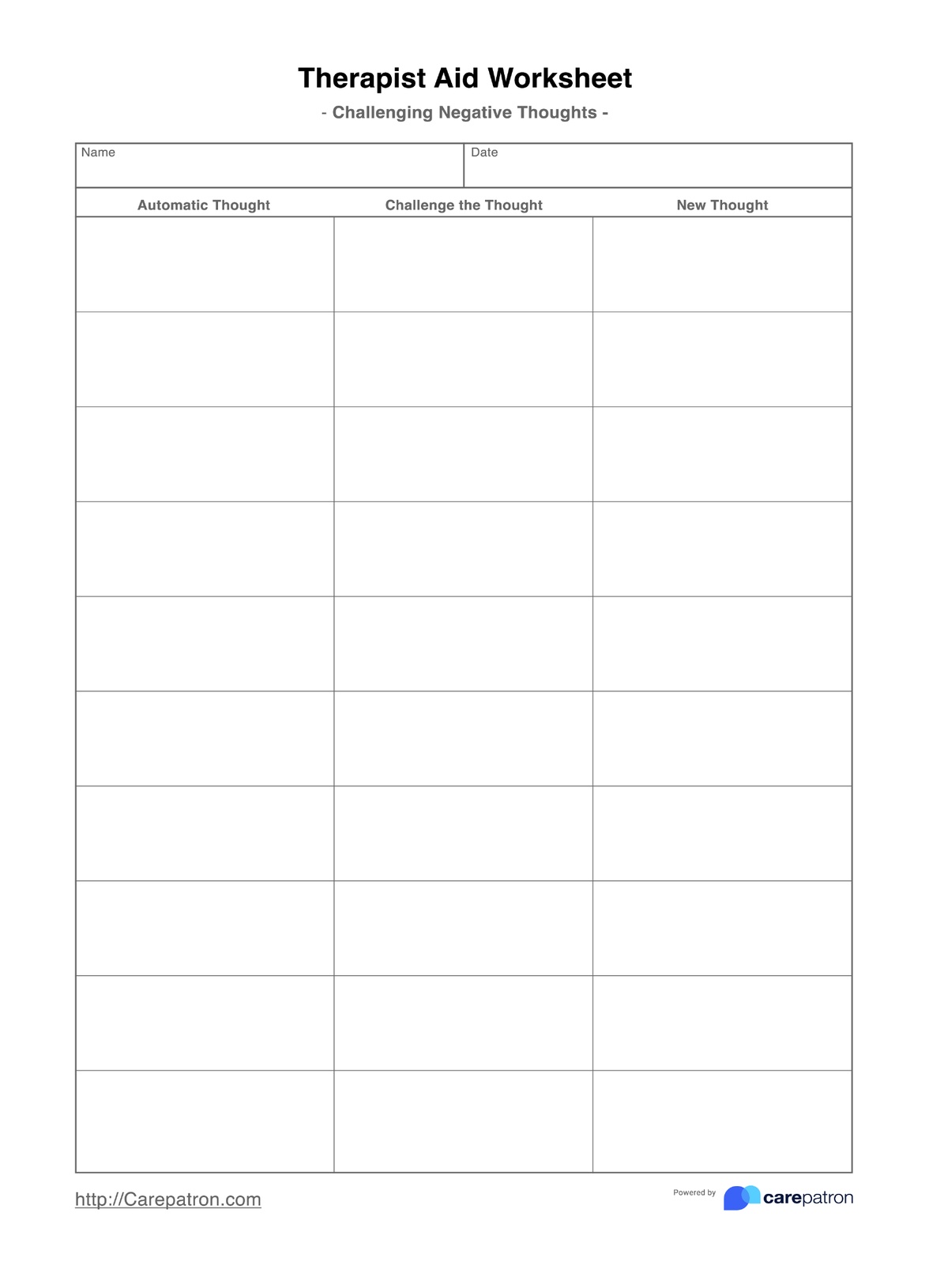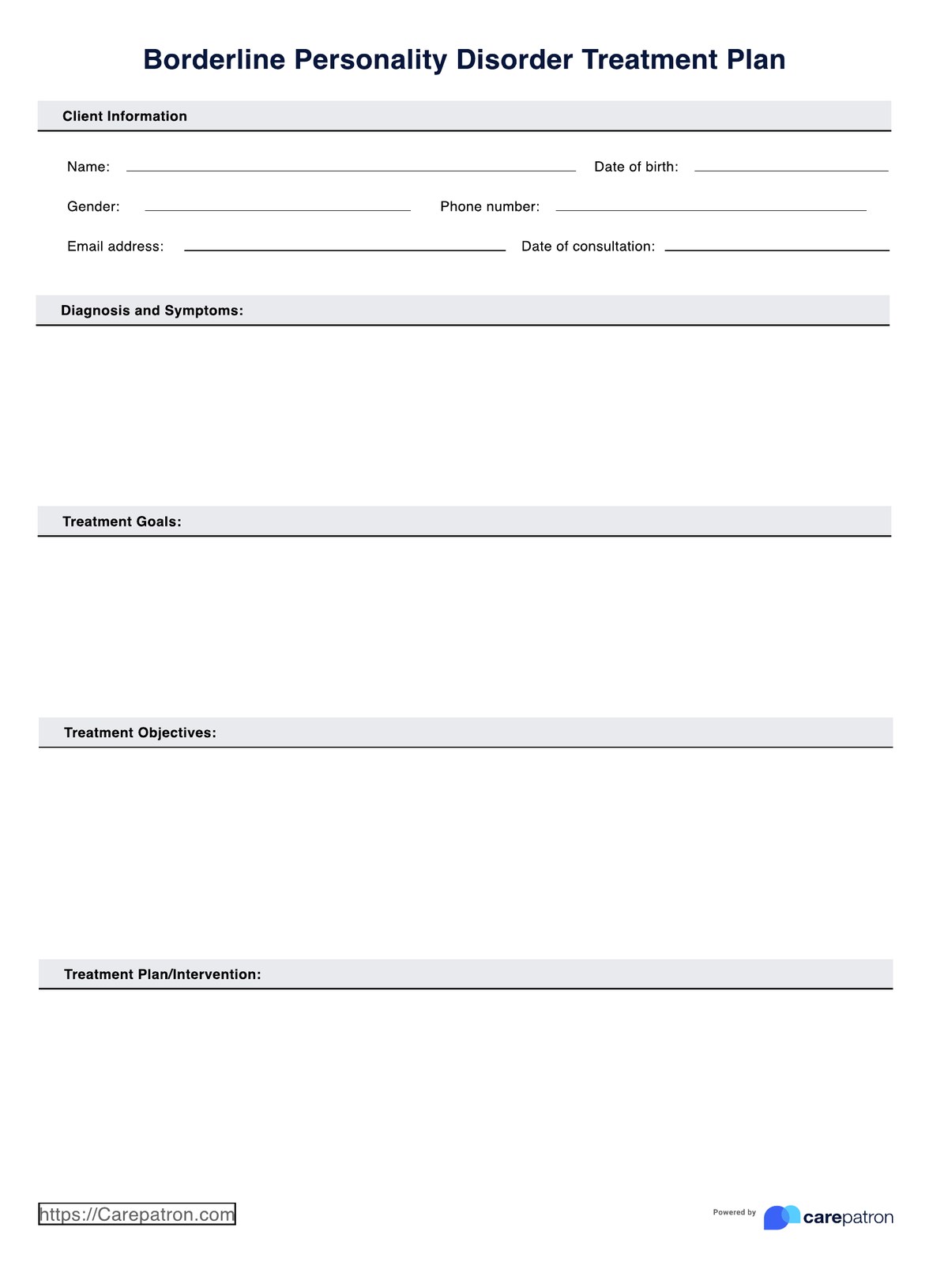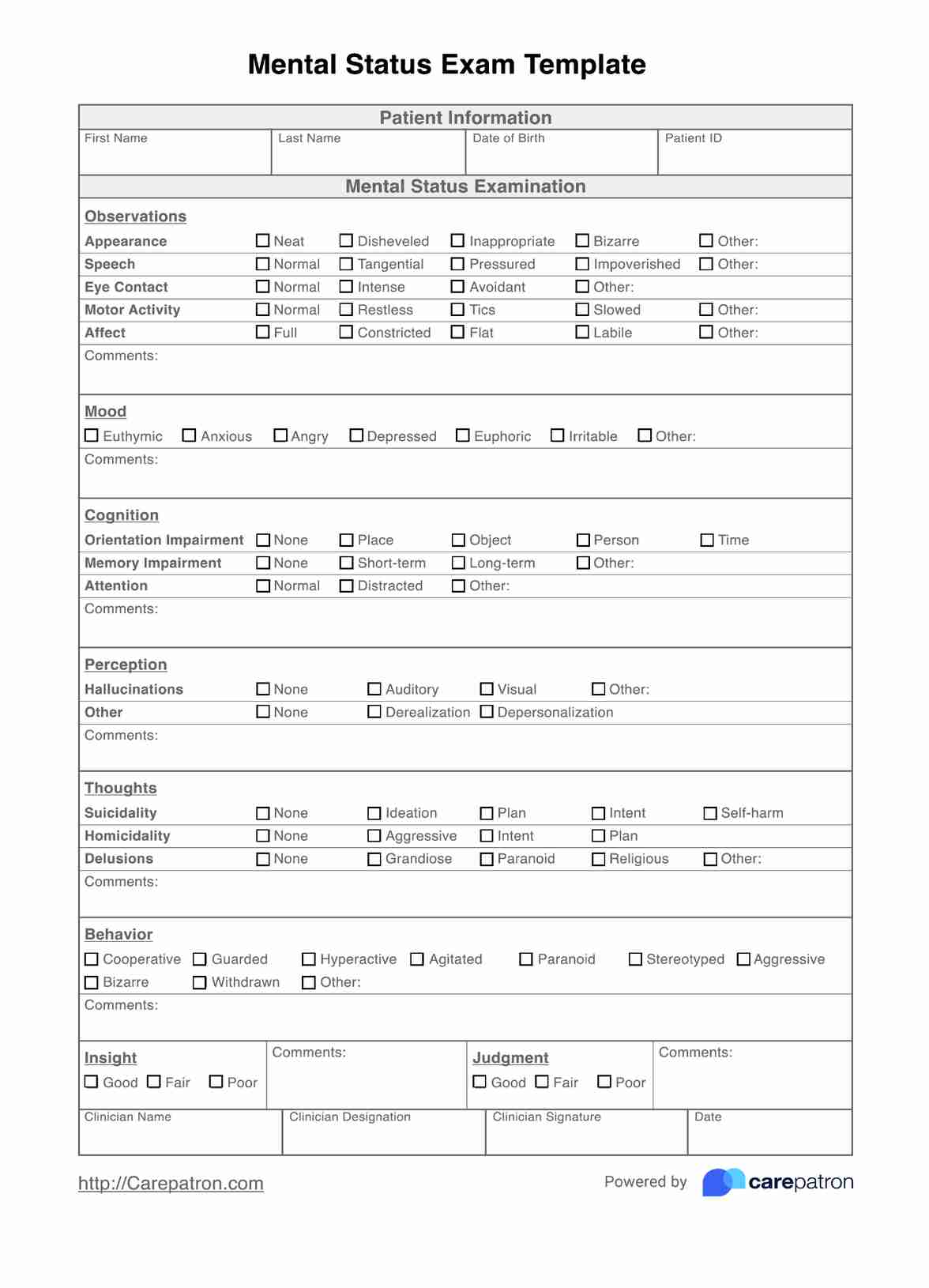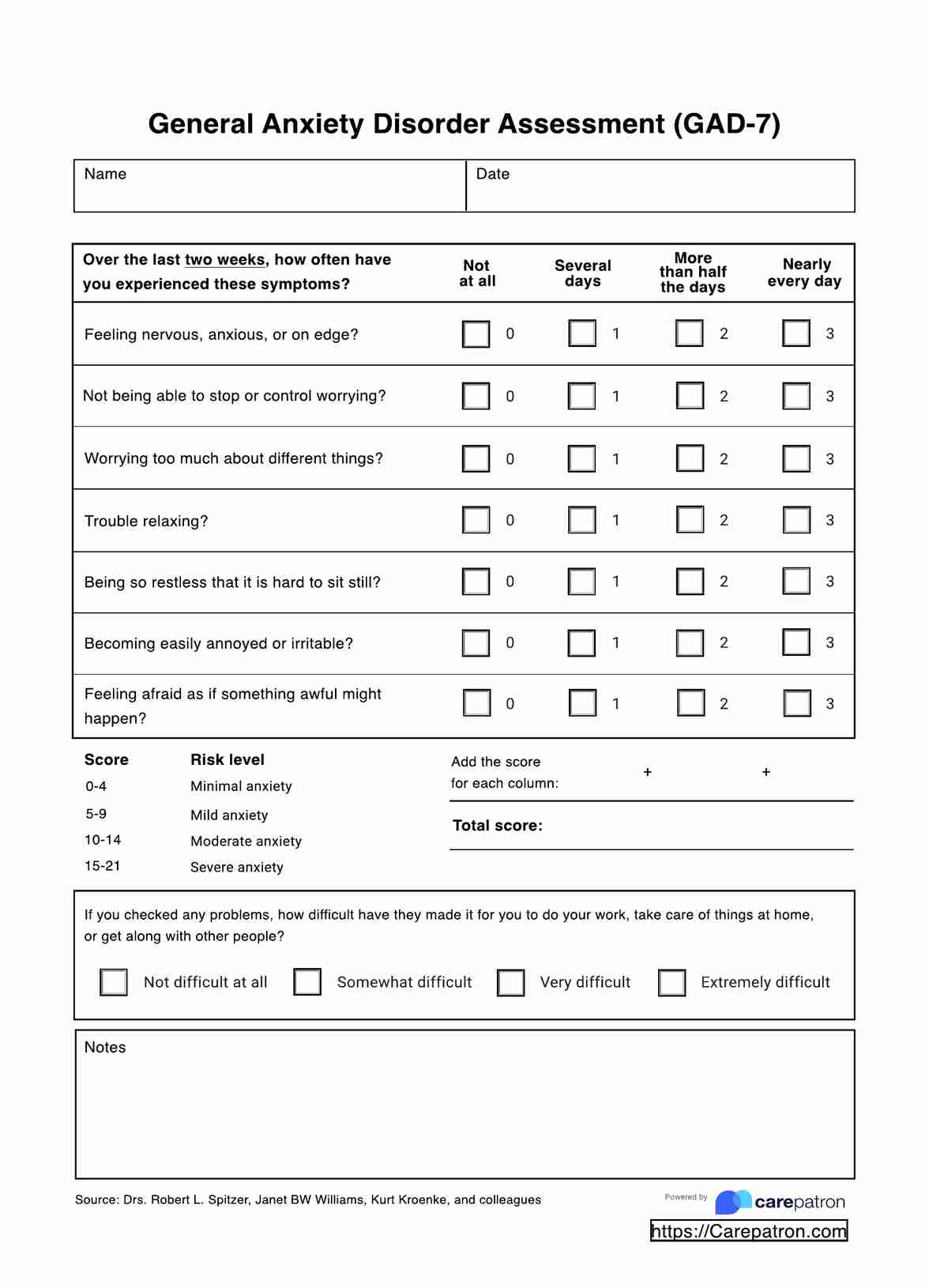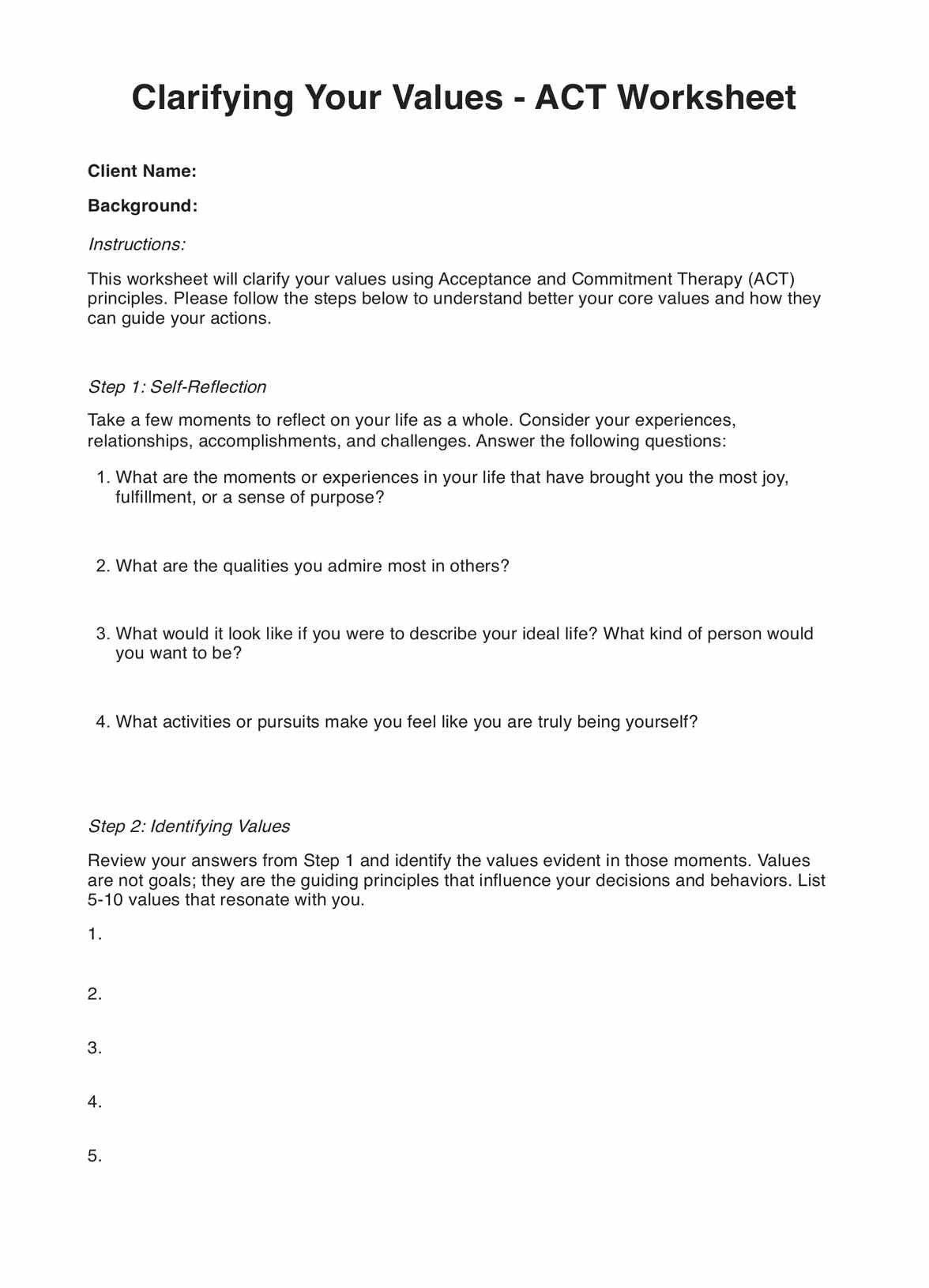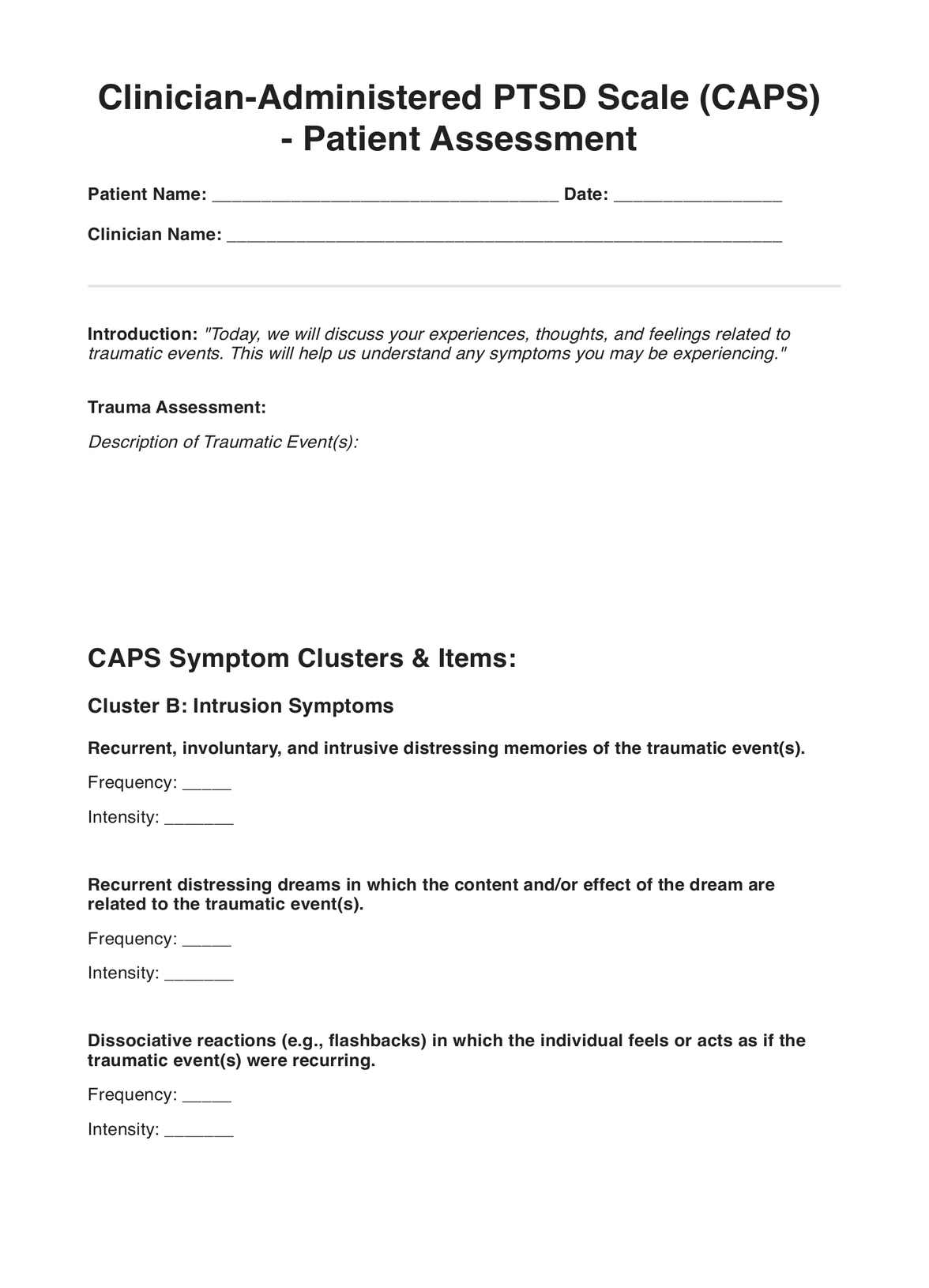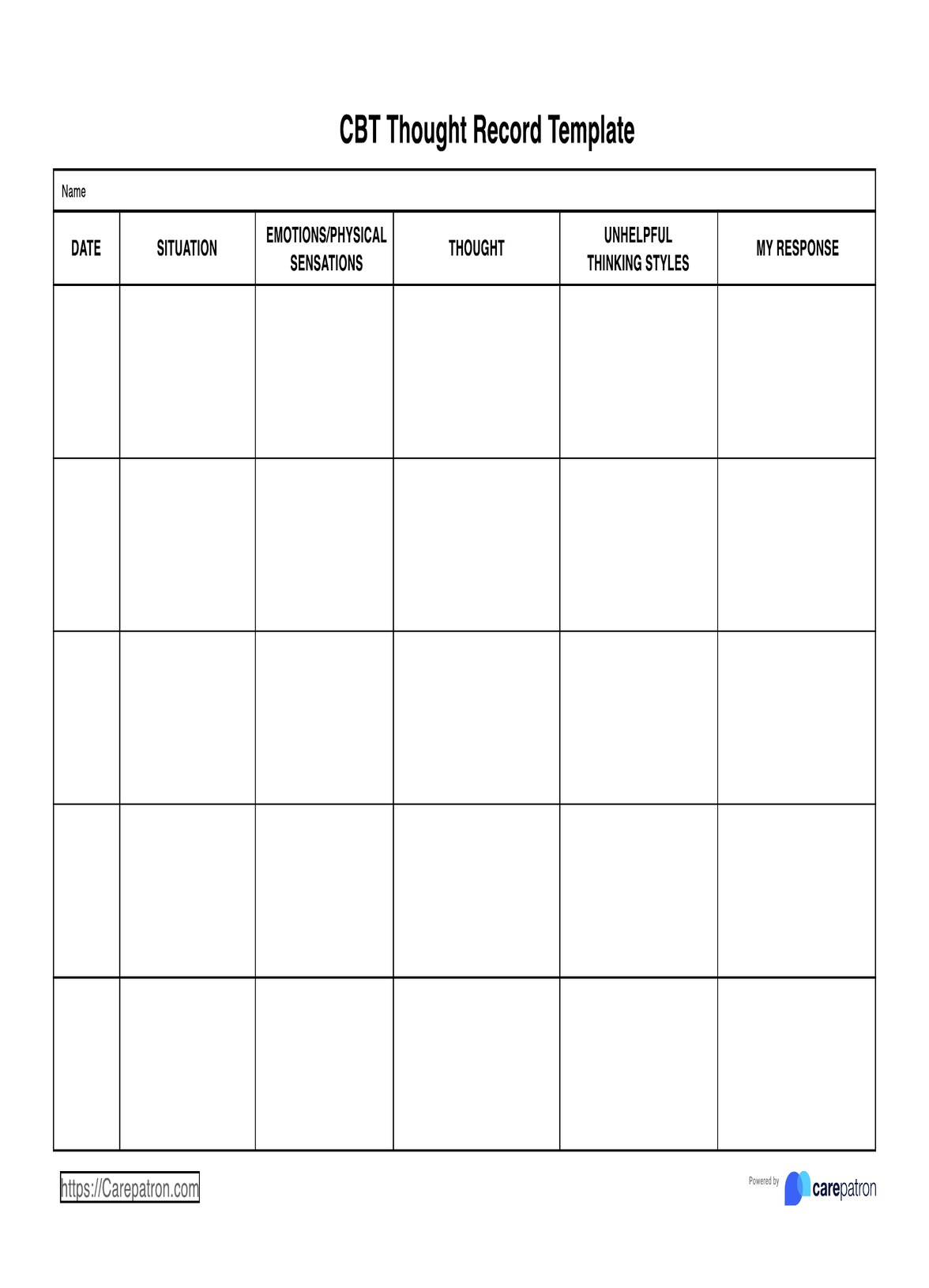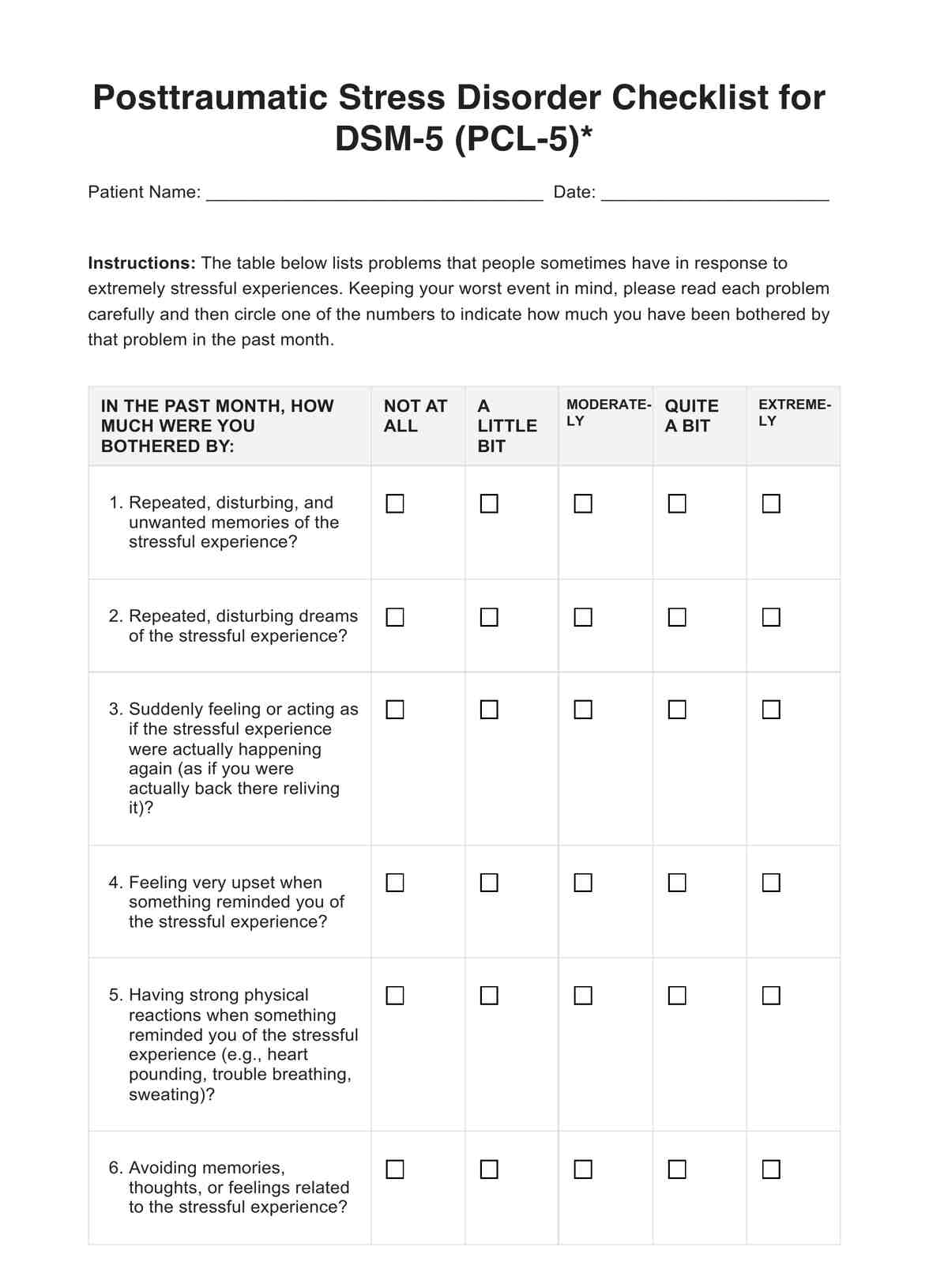Rosenberg Self-esteem Scale
If you’re a therapist or counselor and notice that your patient has low self-esteem, use the Rosenberg Self-esteem Scale to assess them and determine the next steps to help them find their self-esteem and self-worth.


What is self-esteem?
Self-esteem refers to an individual's subjective evaluation of their worth or value. It is about our beliefs about ourselves, including our capabilities, accomplishments, and inherent value as a person. We can think of it as the internal compass that guides our thoughts, emotions, and behaviors (Monteiro et al., 2021).
People with high self-esteem generally feel confident in their abilities, worthy of love and respect, and secure in their sense of self. On the other hand, those with low self-esteem may struggle with self-doubt, feelings of inadequacy, and a critical inner voice (Rosenberg et al., 1995).
Rosenberg Self-esteem Scale Template
Rosenberg Self-esteem Scale Example
What is the Rosenberg Self-Esteem Scale (RSES)?
The Rosenberg Self-Esteem Scale (RSES) is a widely used self-report instrument for measuring self-esteem. It evaluates an individual's overall sense of self-worth or self-acceptance. Developed by sociologist Dr. Morris Rosenberg in 1965, the RSES is one of the most commonly used and well-validated scales for assessing global self-esteem.
Rosenberg's Self-Esteem Scale consists of 10 statements about overall feelings of self-worth or self-acceptance. The statements are answered on a four-point scale ranging from "strongly agree" to "strongly disagree." Five of the statements are worded positively (e.g., "On the whole, I am satisfied with myself"), and five are worded negatively (e.g., "At times, I think I am no good at all").
The RSES is designed for measuring global self-esteem. It involves assessing both positive and negative feelings about oneself. Scores on the RSES range from 0 to 30, with higher scores indicating higher levels of self-esteem (Rosenberg, 1965).
The scale is widely used in clinical settings, research studies, and educational contexts to assess self-esteem and its relationship to various outcomes, such as one's self-concept, mental health, academic achievement, and interpersonal relationships.
Psychometric characteristics of Rosenberg Self-Esteem Scale (RSES)
The Rosenberg Self-Esteem Scale has been extensively studied and validated. It has demonstrated strong psychometric properties across various populations and cultures.
Reliability
The RSES exhibits high internal consistency, with Cronbach's alpha coefficients typically ranging from 0.77 to 0.88 across different samples (Sinclair et al., 2010). This indicates that the scale items consistently measure the same underlying construct of global self-esteem. Additionally, the scale has demonstrated good test-retest reliability, with correlation coefficients ranging from 0.82 to 0.88 over a one-week interval (Rosenberg, 1965).
Validity
Psychological research has demonstrated that RSES has strong construct validity, correlating positively with other measures of self-esteem and negatively with measures of depression and anxiety (Schmitt & Allik, 2005). Its scores have also been found to relate to various outcomes, such as academic achievement, interpersonal relationships, and physical health, in theoretically consistent ways.
Cross-cultural validity
The RSES has been translated into numerous languages and validated across diverse cultural contexts. A large-scale study spanning 53 nations found that the scale's one-factor structure and measurement properties were largely invariant across cultures, supporting its use as a global measure of self-esteem (Schmitt & Allik, 2005).
Overall, the Rosenberg Self-Esteem Scale has consistently exhibited strong psychometric properties, contributing to its widespread use and acceptance as a reliable and valid measure of global self-esteem in research and clinical practice.
How to score and interpret the Rosenberg Self-Esteem Scale
Scoring the Rosenberg Self-Esteem Scale is straightforward and follows a simple Guttman scale. The scale consists of ten statements, each with response options ranging from "Strongly Agree" to "Strongly Disagree."
For the positively worded statements (items 1, 3, 4, 7, and 10):
- Strongly agree: 4 points
- Agree: 3 points
- Disagree: 2 points
- Strongly disagree: 1 point
For the negatively worded items (items 2, 5, 6, 8, and 9), the scoring is reversed:
- Strongly disagree: 4 points
- Disagree: 3 points
- Agree: 2 points
- Strongly agree: 1 point
The results generally consist of four raw scores and four percentiles:
- Total self-esteem
- Self-competence (sum of first five items)
- Self-liking (sum of second five items)
- Self-competence minus self-liking (SC-SL)
Once the patient or respondent answers, you add up their self-esteem scores. A higher total score indicates higher self-esteem. While the RSES doesn't prescribe specific ranges, this simple scoring system allows professionals to interpret the results quickly.
Remember that understanding the context of an individual's score, considering factors like commitment therapy or self-deprecation tendencies, is crucial for a comprehensive assessment. The RSES is a valuable tool for professionals aiming to gauge and address self-esteem in various settings and diverse demographic groups.
How can you help clients with low self-esteem?
Helping clients with low self-esteem is important to many healthcare practitioners' work. Low self-esteem can negatively impact an individual's overall well-being, self-confidence, and quality of life.
- Create a positive environment: Establish a safe, non-judgmental space where clients feel comfortable discussing their general feelings and individual sense of self-worth to assess their self-esteem levels.
- Holistic clinical assessment: While the RSES provides a snapshot of global self-esteem scores, a comprehensive clinical assessment is necessary to understand the client's unique circumstances, social psychological attitudes, and potential contributing factors to low self-esteem.
- Challenge negative thought patterns: Help clients identify and reframe negative self-perceptions, especially when they feel useless or inadequate. This can be done by highlighting their good qualities, strengths, and accomplishments. Encourage self-compassion and a more healthy and positive attitude.
- Explore social psychological constructs: Examine the client's relationships, support systems, and cultural influences, as these social psychological constructs can significantly impact self-esteem. Foster healthy interpersonal connections and help clients develop more respect for themselves and others.
- Evidence-based interventions: Use various evidence-based techniques, such as cognitive-behavioral therapy, mindfulness practices, or skills-building exercises, to help clients cultivate a healthier self-perception and improve self-esteem.
- Ongoing support and guidance: Recognize that improving self-esteem is a process that may require continuous support and guidance. Provide clients with the tools and resources necessary to maintain and further develop their self-confidence and overall well-being.
References
Monteiro, R. P., Coelho, G. L. de H., Hanel, P. H. P., de Medeiros, E. D., & da Silva, P. D. G. (2021). The efficient assessment of self-esteem: Proposing the Brief Rosenberg Self-Esteem Scale. Applied Research in Quality of Life, 17(17). https://doi.org/10.1007/s11482-021-09936-4
Rosenberg, M. (1965). Society and the adolescent self-image. Princeton University Press.
Rosenberg, M., Schooler, C., Schoenbach, C., & Rosenberg, F. (1995). Global self-esteem and specific self-esteem: Different concepts, different outcomes. American Sociological Review, 60(1), 141–156. https://doi.org/10.2307/2096350
Schmitt, D. P., & Allik, J. (2005). Simultaneous administration of the Rosenberg Self-Esteem Scale in 53 nations: exploring the universal and culture-specific features of global self-esteem. Journal of Personality and Social Psychology, 89(4), 623–642. https://doi.org/10.1037/0022-3514.89.4.623
Sinclair, S. J., Blais, M. A., Gansler, D. A., Sandberg, E., Bistis, K., & LoCicero, A. (2010). Psychometric properties of the Rosenberg Self-Esteem Scale: overall and across demographic groups living within the United States. Evaluation & The Health Professions, 33(1), 56–80. https://doi.org/10.1177/0163278709356187
Commonly asked questions
The Rosenberg Self-Esteem Scale (RSES) is considered a reliable measure of self-esteem, demonstrating good internal consistency and test-retest reliability. Studies have shown that the RSES produces consistent results over time and across different populations, making it a dependable tool for assessing self-esteem levels.
The Rosenberg Self-Esteem Scale (RSES) is suitable for use with individuals across a wide age range, including adolescents and adults. While there is no specific age limit for the RSES, it is commonly used with individuals aged 12 and above in both clinical and research settings.
Low self-esteem can stem from various factors, including negative life experiences, childhood trauma, social comparisons, unrealistic standards, lack of social support, and internalized criticism. These factors can contribute to feelings of inadequacy, self-doubt, and a negative self-image.
Higher scores on the RSES suggest a higher level of self-esteem. While the scale does not provide specific designations, the principle is that a more positive self-perception is reflected in higher scores.


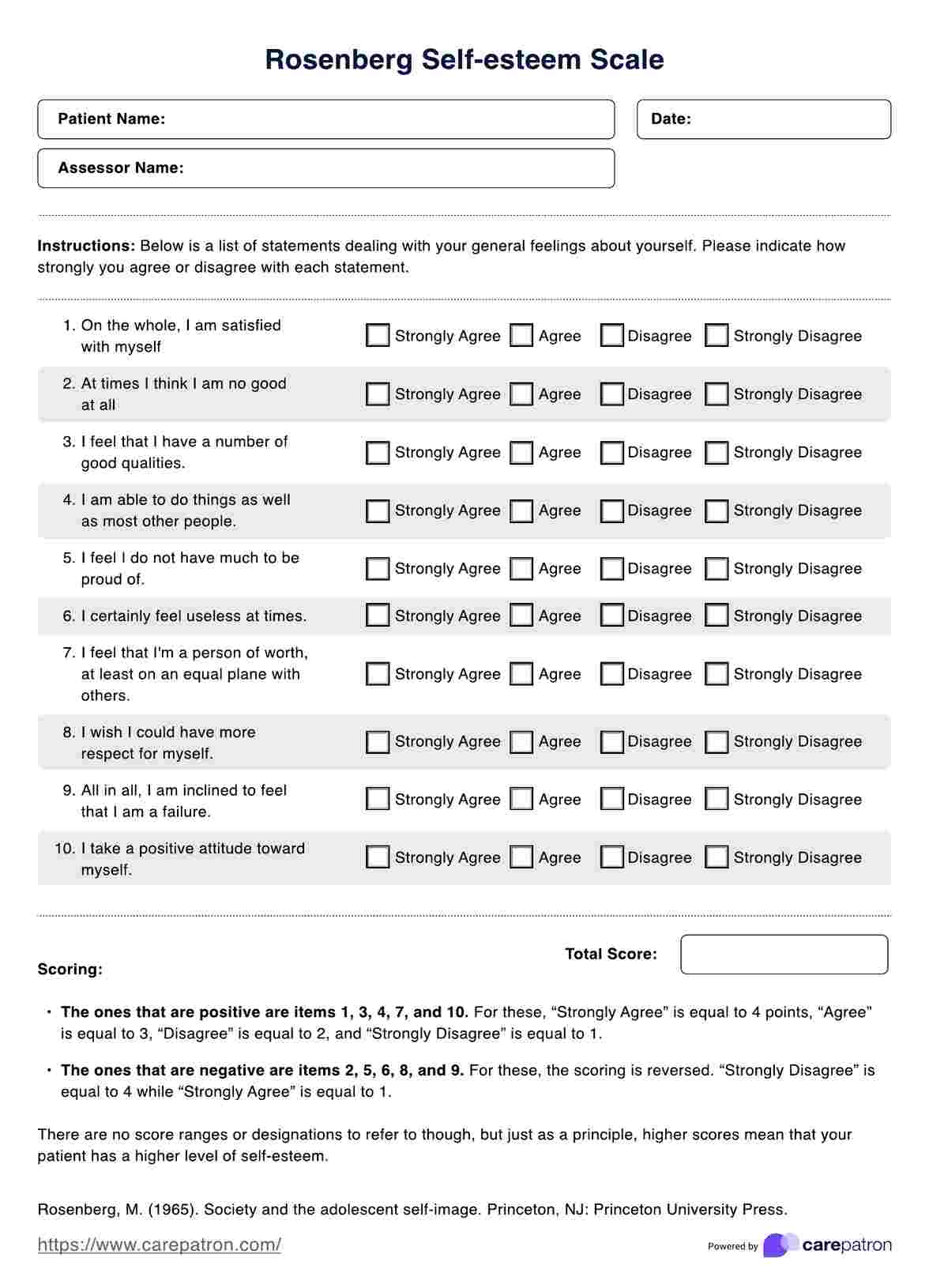
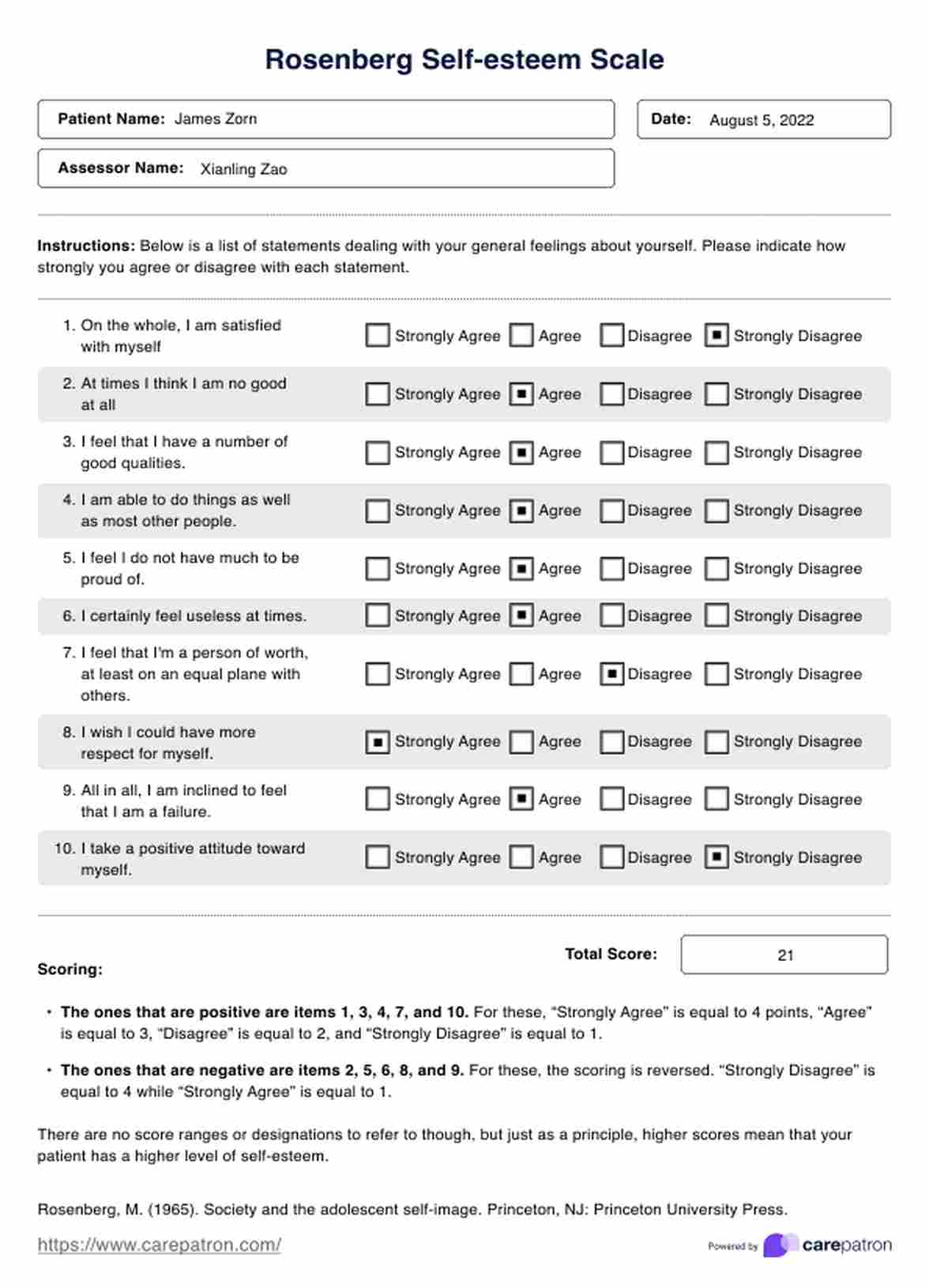

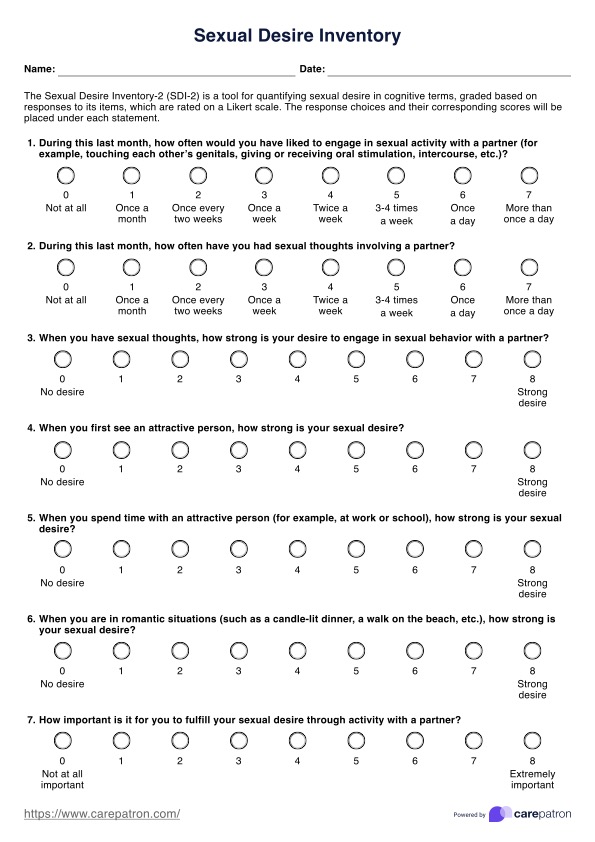
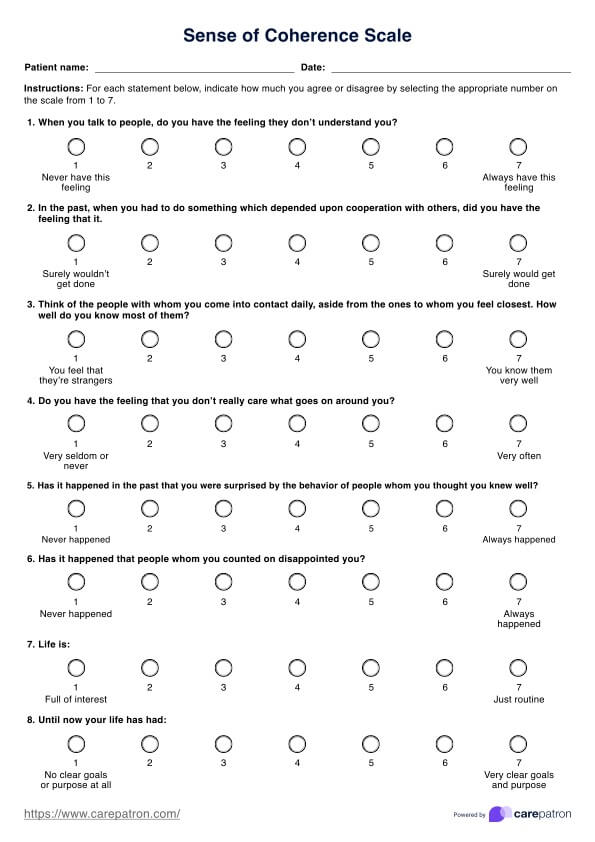










-template.jpg)


















































































